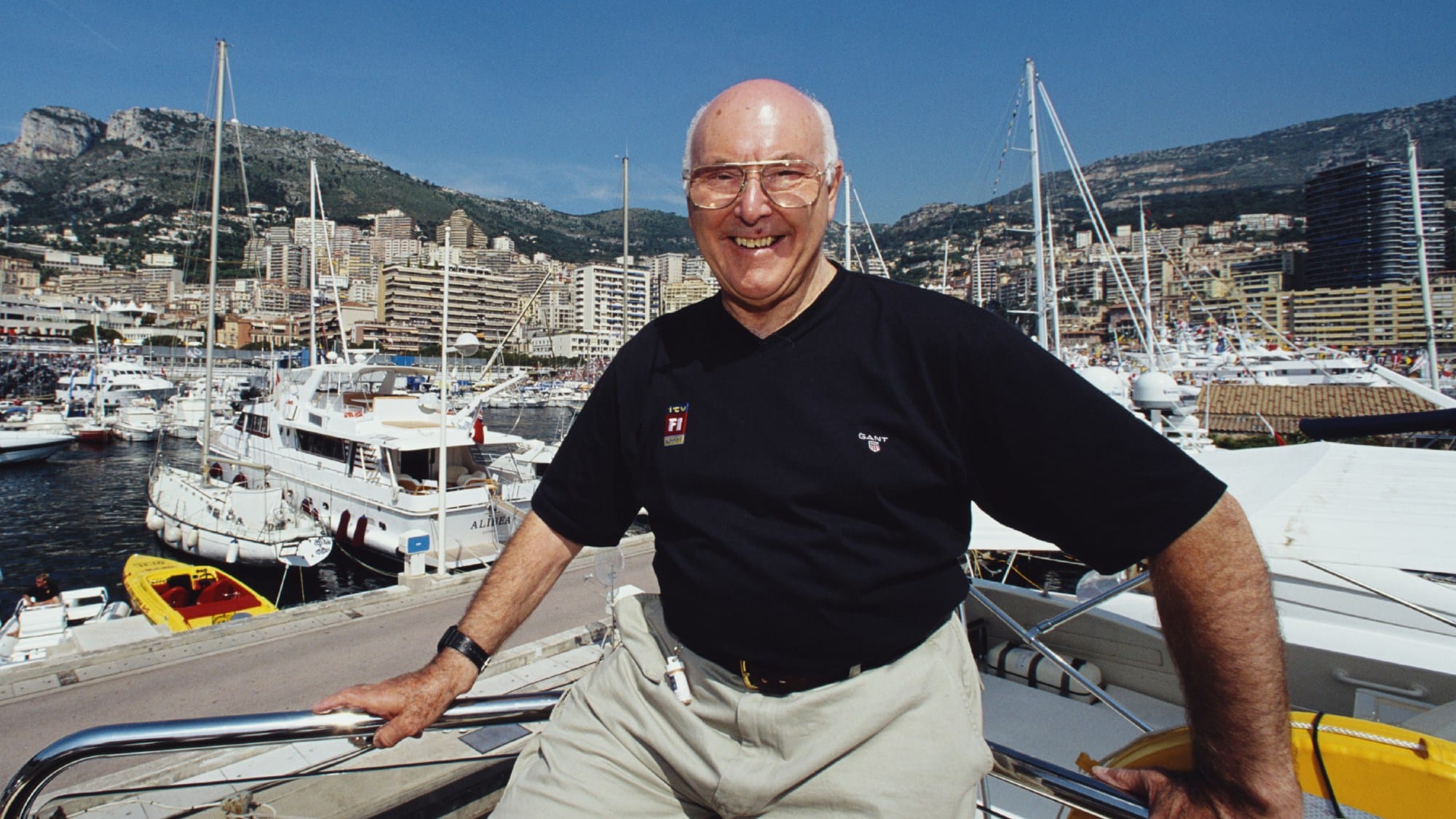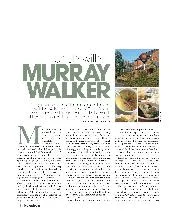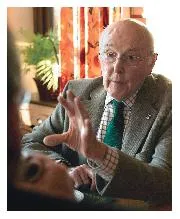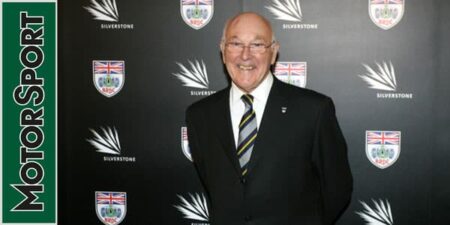Walker forged strong bonds with a number of co-commentators, notably James Hunt (even though he once almost thumped him while they wrestled over a single microphone) and Martin Brundle, and continued working in F1 – for both ITV and the BBC – until the 2001 United States GP at Indianapolis.
Even after stepping down, however, he remained a frequent paddock fixture, fulfilling ambassadorial roles and undertaking occasional TV and radio commitments – something he continued until he was well into his 90s.
Away from the microphone, he was an old-school enthusiast – a man who sounded as passionate as he did because his love for the sport was absolute. He was also charming, engaging company, and generous with his time to all those who sought a signature or else, simply, a quick chat.
There will never be another quite like him.
Simon Arron remembers Murray Walker
Silverstone was cloaked in its traditional autumn grey when the message came through to the press room: “The BBC’s lap charter hasn’t turned up and Murray Walker will need some help. Why don’t you put yourself forward?”
It was 1982, long before live timing’s invention, and the Beeb was making one of its occasional dips into the British F3 Championship. I was directed towards the Outside Broadcast trucks, parked close to Woodcote, and poked my head through a gap to see what the inner sanctum contained: there were assorted cables lying around and Murray Walker stood in the middle, apparently unoccupied. I wandered up to introduce myself, wondering how a 21-year-old cub reporter might be received by a household name, and his welcome could not have been warmer. The lap-charting crisis had already been averted, but he thanked me for volunteering and wished me well as I headed back towards the paddock.




